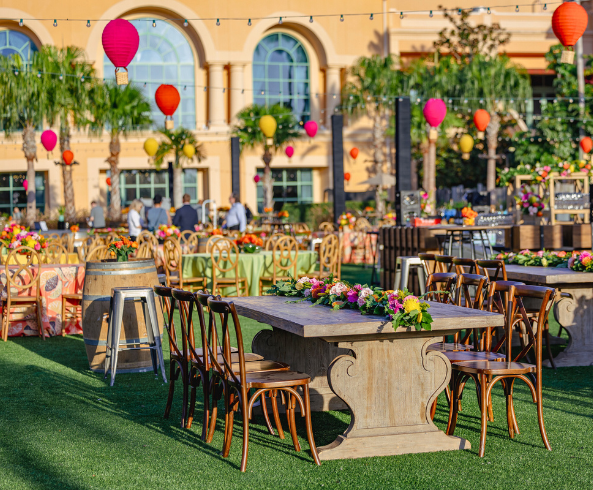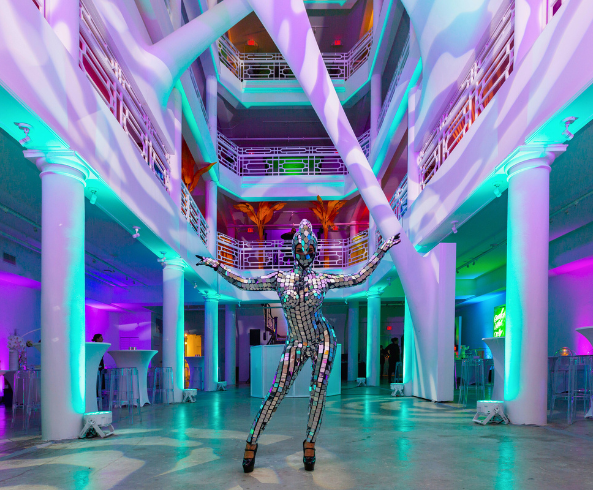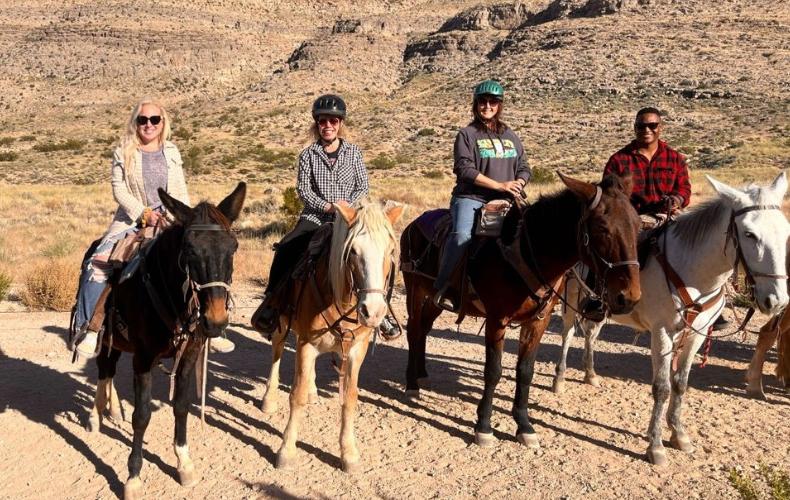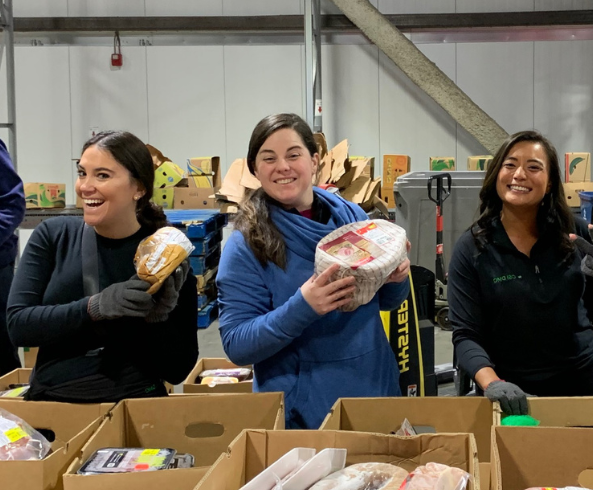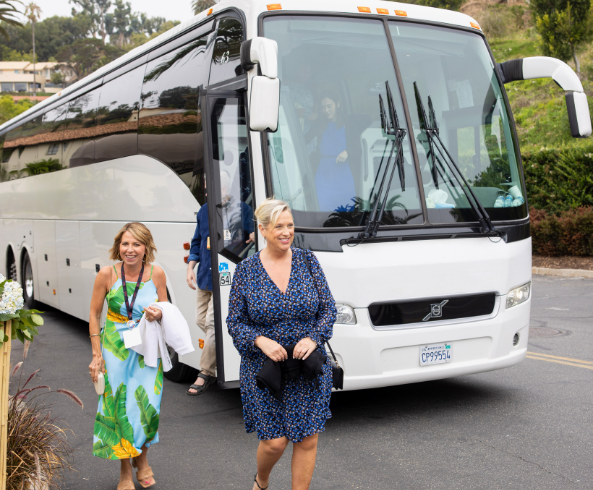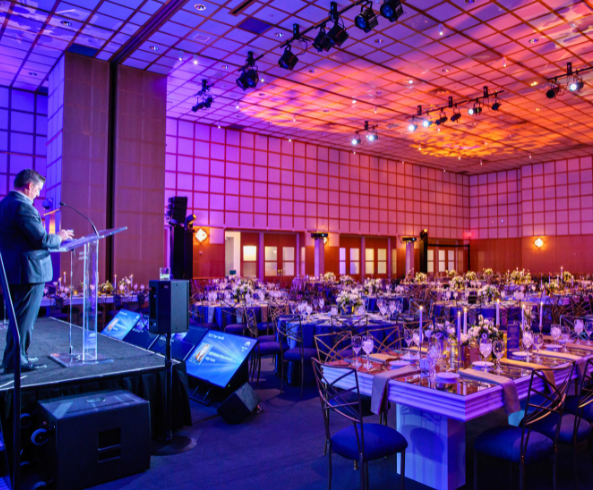CSI DMC recently had two of its team members, Taylor Abbate, CMP, DES, HMCC, and Jennifer Jones, share their insights at prominent industry panels, Professional Convention Management Association’s Convening Leaders (PMCA) in San Diego and Meeting Professionals International (MPI) State of the Industry in Southern California, respectively.
Taylor is the Director of National Sales and serves on the PCMA Southwest Pacific Chapter as their Supplier Director. She has been a member of PCMA since 2016. Jennifer is the Senior Account Executive in California and has been a member of MPI since 2022.
Both team members sat down with us to share insights and key takeaways from each panel, offering a glimpse into the evolving landscape of event management, the increasing importance of authenticity and human connection, and the innovative strategies shaping the future of the industry.
A DMC Perspective on Budgets and Creativity
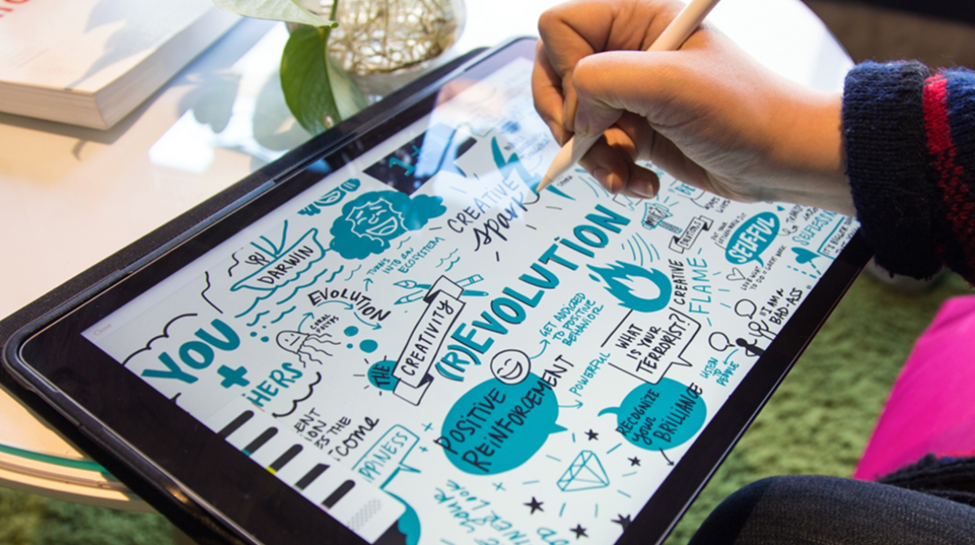 The vice president of a third-party planning group brought an interesting angle to PCMA’s discussion, focusing on the dichotomy of budget cuts versus the need for unique, engaging event experiences. This is a pivotal concern in the industry, as professionals grapple with delivering high-value experiences without compromising on quality. Taylor asks, “From a DMC perspective, how can we spend that money to create unique, yet high-value experiences?” She adds that it is a DMC’s job to be creative and show the client the value that is being provided. Taylor’s approach is multifold— she prioritizes interactive elements over lavish décor, investing in memorable experiences like care kits for local charities as part of a CSR, or tapping into the potential of lesser traveled, but still equally exciting cities like Louisville. This charming city is the hidden gem of the South where guests can experience the Kentucky Derby, the Bourbon Trail, various museums, luxurious hotels, and a vibrant culinary scene. Choosing to plan events in destinations like these allows for a budget to go further while still exceeding program expectations.
The vice president of a third-party planning group brought an interesting angle to PCMA’s discussion, focusing on the dichotomy of budget cuts versus the need for unique, engaging event experiences. This is a pivotal concern in the industry, as professionals grapple with delivering high-value experiences without compromising on quality. Taylor asks, “From a DMC perspective, how can we spend that money to create unique, yet high-value experiences?” She adds that it is a DMC’s job to be creative and show the client the value that is being provided. Taylor’s approach is multifold— she prioritizes interactive elements over lavish décor, investing in memorable experiences like care kits for local charities as part of a CSR, or tapping into the potential of lesser traveled, but still equally exciting cities like Louisville. This charming city is the hidden gem of the South where guests can experience the Kentucky Derby, the Bourbon Trail, various museums, luxurious hotels, and a vibrant culinary scene. Choosing to plan events in destinations like these allows for a budget to go further while still exceeding program expectations.
Opting for experiences that resonate with the community and leave a minimal environmental footprint not only aligns with global sustainability goals but also fosters a deeper connection with the event's locale and attendees. As Taylor framed it, “Consider what will be memorable. Guests won’t remember the details, but they will remember the experience.” This conscientious approach reflects our dedication to crafting events that are not only memorable and impactful but also socially responsible. Jennifer agrees and adds, “Budgets need to be justified when the client goes back to stakeholders.”
Jennifer also shares that it is important to be creative and to move beyond traditional formats like wine tastings or smoke stations. She emphasizes the importance of offering unique, immersive experiences. Ideas like fireside chats with songwriters, wine blending classes, and aroma scent bars not only cater to diverse preferences but also ensure that events leave a lasting impression. Guests want to partake in an activity where they learn something and can take that knowledge back. “For example,” Jennifer shares, “Bring in a sommelier who knows about the different varietals of wine and have them teach attendees how they can blend their wine, based on their flavor profile.” For a zero-proof, 100% flavor twist, we bring in an expert mixologist who can teach guests how to create drinks that are intricate and full of flavor so they can recreate them back home. Our Creative Services team can also incorporate a chakra bar and balancing activation, where attendees can have the chakras aligned and afterward, enjoy a zero-proof beverage that represents their chakra.

Embracing Technological Advancement and Mental Wellness
The increasing integration of AI in event management, from creating RFPs to generating social media captions, was a dominant theme at PCMA’s conference. Taylor shares, “We need to learn to adapt to AI because it is coming into our events. There has been so much progress with AI.” However, Taylor adds that AI should be used responsibly. Creativity doesn’t come from AI and should not be seen as a tool to take over the creative solutions an event planner can create. Taylor also shares that being transparent about how AI is being used in a company should be a priority.
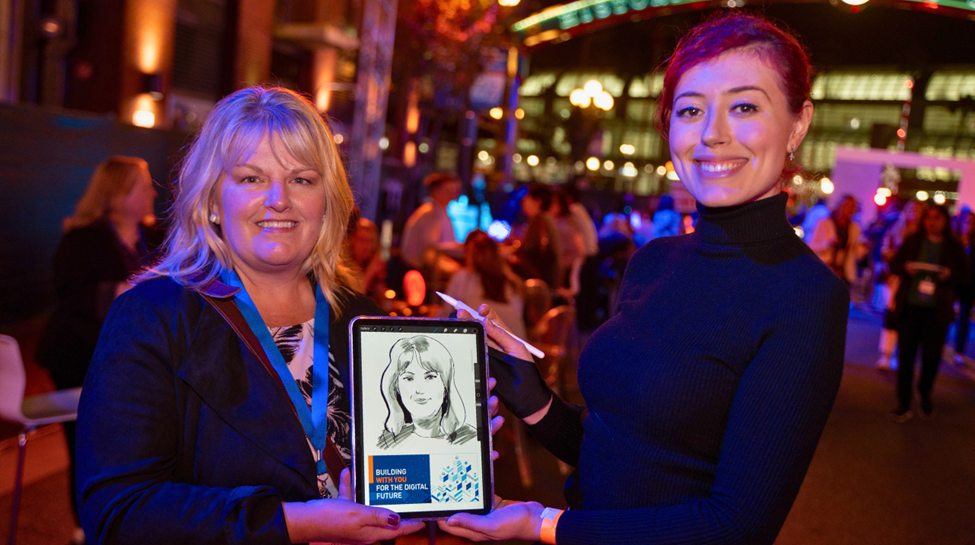
Equally important is the focus on mental health and the need to address burnout in this high-stress industry. One misconception about the events industry is that the job is just about parties, networking, and having fun. However, according to a study done by World Scholarship Vault, event planning is the third most stressful job in 2023. Changes in budgets, price increases, and new client expectations are contributing to the stress. An article shared by Trade Shows News Network (TSSN), shares that, “More than a third of event planners now report anxiety and burnout.” Taylor agrees and shares that PCMA had an education session aimed at the topic. “There was a great session geared for high performers and what they can do to ease the anxiety that leads to burnout – [the key takeaway] have conversations with managers and be transparent,” Taylor says. She adds that one thing that has worked for her is to ask for help when she needs it and to prioritize time for herself to feel her best when she is working.
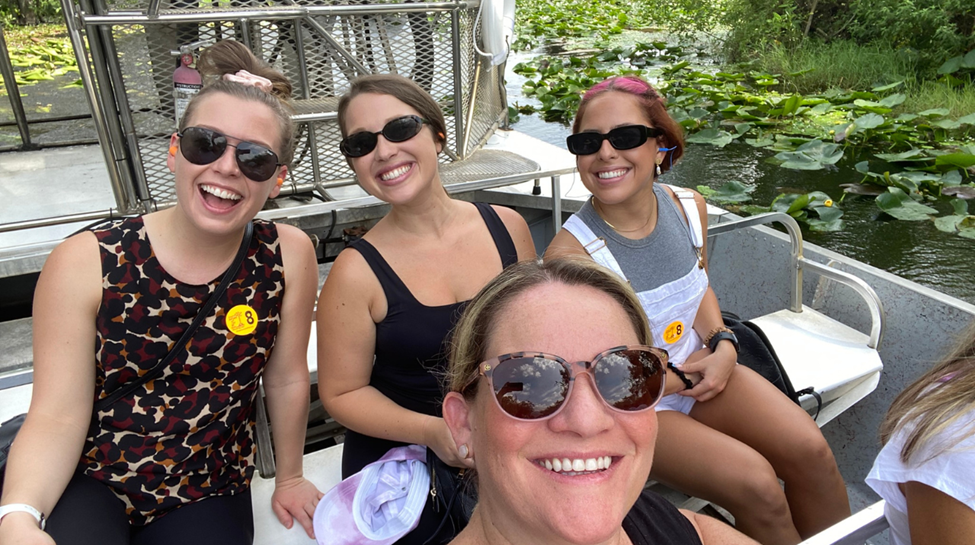
The Evolution of Work: Insights from MPI'S State of the Industry Panel
During MPI’s State of the Industry panel, the conversation turned to the topic of working remotely versus working from an office. Two out of four panelists championed the in-office experience, emphasizing its role in providing hands-on training, fostering a learning environment, and offering a platform to understand the nuances of sales through active listening and participation. However, not all panelists agreed; some expressed concerns about the productivity dips associated with office work, highlighting the significant time lost to Los Angeles traffic and their preference for the autonomy and efficiency of remote work, given their seasoned expertise in the hospitality sector.
While most of our team members work remotely, our approach is inclusive and dynamic, inviting new team members to participate in discovery calls, allowing them to observe and contribute to the first few proposals, understanding that it takes time and experience. Jennifer shares, “When it comes to site visits, we invite team members. We also try to meet up frequently.” Our teams can often be found together at networking events, site visits, team building activities, visiting new venues, or even just spending time together. Our approach is about nurturing a sense of belonging and creating a supportive framework where every team member feels valued, connected, and geared towards collective success.

Looking Ahead: The Future of Event Management
Both Taylor and Jennifer highlight the importance of agility, creativity, and foresight in the future of event management. As the industry continues to evolve, the emphasis on human connection, technological integration, and innovative engagement strategies will continue to shape the path of our industry. Their experiences and insights serve to underscore the need to adapt, innovate, and above all, connect authentically.



